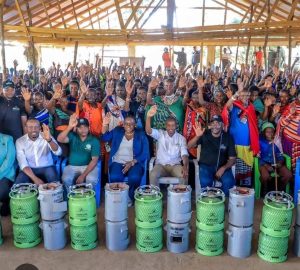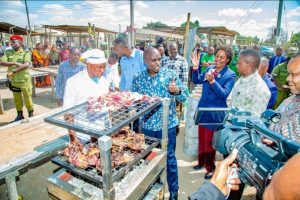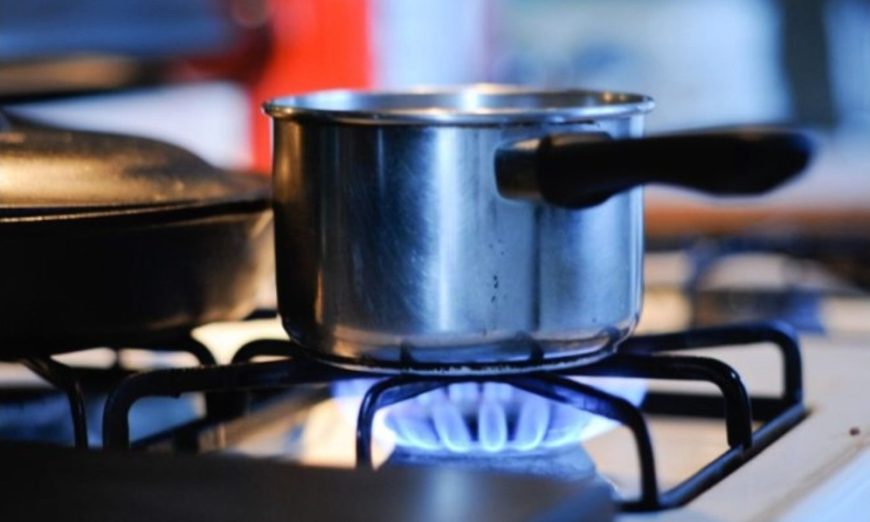AS the 30th Conference of the Parties (COP30) to the UN Framework Convention on Climate Change approaches this November in Belém, Brazil, Tanzania finds itself at the forefront of Africa’s climate leadership.
Chairing the African Group of Negotiators (AGN), the country is tasked with championing issues that touch every household, from clean cooking energy to climate finance and resilience strategies. The weight of expectation is immense, but so is the opportunity. Tanzania can turn a local energy challenge into a continental and global climate story.
The COP30 is scheduled for November 10–21, 2025, at the Hangar Convention and Fair Centre of the Amazon.
The challenge at home
For millions of Tanzanians, cooking is far from a trivial task. Over 90% of households still rely on biomass fuels – firewood and charcoal – for their daily meals. In rural villages, women and children spend hours collecting firewood, while smoke-filled kitchens expose them to indoor air pollution, a leading cause of respiratory illnesses, particularly among young children.
“Limited infrastructure in rural areas forces households to continue using firewood and charcoal,” says Boniventura Mchomvu, Operations Manager at Climate Action Network Tanzania, adding:
“The government must ensure enabling systems for production, distribution, and accessibility so every household can use gas.”
Despite ambitious plans under the National Clean Cooking Strategy (2024–2034), which targets 80% household access to clean cooking energy by 2034 through LPG, biogas, and improved cookstoves, reality remains harsh.
Only about 20% of households currently have access to clean cooking solutions—a remarkable increase from just 6.9% in 2021, yet leaving the majority of rural populations dependent on traditional fuels.
Urban areas have led this progress, accounting for over two-thirds of new connections, while remote communities continue to face distance, cost, and infrastructure barriers.

Tanzania’s leadership and commitment
At the Mission 300 Africa Energy Summit in Dar es Salaam on October 27, 2025, Tanzania’s Deputy Prime Minister and Minister for Energy, Dr. Dotto Biteko, reaffirmed the country’s commitment to clean cooking and universal energy access.
“We are determined to ensure that 80% of Tanzanian households have access to clean cooking energy by 2034,” Dr. Biteko declared, emphasizing its importance for public health, economic resilience, and environmental sustainability.
He highlighted Tanzania’s energy progress since independence:
“When we gained independence, Tanzania had only 21 megawatts of electricity. Today, we have expanded to over 3,160 megawatts,” he said, stressing that energy development has transformed lives and industries.
Dr. Biteko also pointed out the continental stakes:
“An estimated 571 million Africans still lack access to electricity. This summit is crucial to accelerate adoption of clean cooking solutions across the continent.”
He called for stronger partnerships between governments, private investors, and international organizations to reduce reliance on traditional fuels like firewood and charcoal, which pose both environmental and health risks.
Economic and social realities
Tanzania’s ambition is constrained by stark economic realities. With a GDP per capita of roughly $1,200, many households cannot afford LPG or biogas. Government subsidies are limited by fiscal capacity, and private distributors find rural expansion unprofitable, leaving large swaths of the population underserved.
The social landscape compounds the challenge. Cooking with firewood is deeply embedded in rural life, and adoption of clean energy requires behavioral change. Women and children bear the heaviest burden, losing hours that could otherwise be spent on education or income-generating activities.
“There is an urgent need to focus on awareness and infrastructure, especially in rural areas, so that distributors can reach users effectively,” Mchomvu stresses.
“Reducing costs for suppliers is also critical to achieve universal adoption of gas for cooking.”
Infrastructure remains the most daunting hurdle. Tanzania produces LPG, but transporting it to distant villages is expensive and logistically complex. Biogas and improved cookstoves can be locally manufactured, but require technical support, quality standards, and financing mechanisms to ensure effective and sustained use.
Tanzania on the global stage
At COP30, Tanzania’s leadership extends beyond its borders. By pushing for the inclusion of clean cooking in Africa’s Nationally Determined Contributions (NDCs), the country seeks to link household energy solutions to continental and global climate mitigation.
“Clean cooking will be a flagship agenda for Africa, combining health, economic, and environmental benefits,” says Richard Muyungi, Presidential Advisor on Environmental Affairs and AGN Chair.
“COP30 will focus on increasing climate financing that contributes to economic growth and strengthens social development,” adds Cyprian Luhemeja, Secretary-General of the Vice President’s Office.
“Tanzania’s national strategies, such as expanding clean cooking, have both local impact and global significance.”
Through this platform, Tanzania can demonstrate how practical, equitable, and transformative solutions can emerge from African innovation, turning local challenges into global leadership.

A multi-layered strategy for success
Experts agree that success requires a comprehensive, step-by-step approach:
Infrastructure Expansion – Extending LPG and biogas distribution networks into rural and remote areas.
Subsidies & Cost Reduction – Incentivizing distributors and making clean cooking affordable for low-income households.
Awareness Campaigns – Educating communities about health, environmental, and economic benefits.
Policy Integration – Embedding clean cooking into NDCs and Africa’s continental climate strategy.
Incremental rollout, starting in high-density rural areas and urban hubs, coupled with public-private partnerships and international climate finance, will be critical in turning ambition into reality.
Why it matters
Globally, 2.1 billion people lack access to clean cooking fuels, resulting in 3 million premature deaths annually due to indoor air pollution. Africa bears a disproportionate share of this burden. For Tanzania, COP30 is more than a diplomatic engagement—it is a chance to show the world that African countries can lead solutions that are locally practical yet globally significant.
“We have a responsibility to ensure that every household can access safe, clean cooking energy,” Mchomvu concludes, adding:
“Tanzania’s leadership at COP30 is an opportunity to show the world that Africa can lead solutions to climate change that are equitable, practical, and transformative.”
Notable quotes
“Limited infrastructure in rural areas forces households to continue using firewood and charcoal.” – Boniventura Mchomvu
“Clean cooking will be a flagship agenda for Africa, combining health, economic, and environmental benefits.” – Richard Muyungi
“Tanzania’s leadership at COP30 is an opportunity to show the world that Africa can lead solutions to climate change.” – Boniventura Mchomvu
Quick stats
Current Access: 20.3% of Tanzanian households have clean cooking energy (2025)
Urban-Rural Split: Urban areas > two-thirds of new connections; rural areas remain majority biomass-dependent
Global Context: 2.1 billion people lack clean cooking globally; 3 million premature deaths per year
Target 2034: 80% of Tanzanian households with clean cooking energy.
……………………………………………………………………………
Additional inputs were provided by Arodia Peter of SK Media Communications and Pambazuko.










